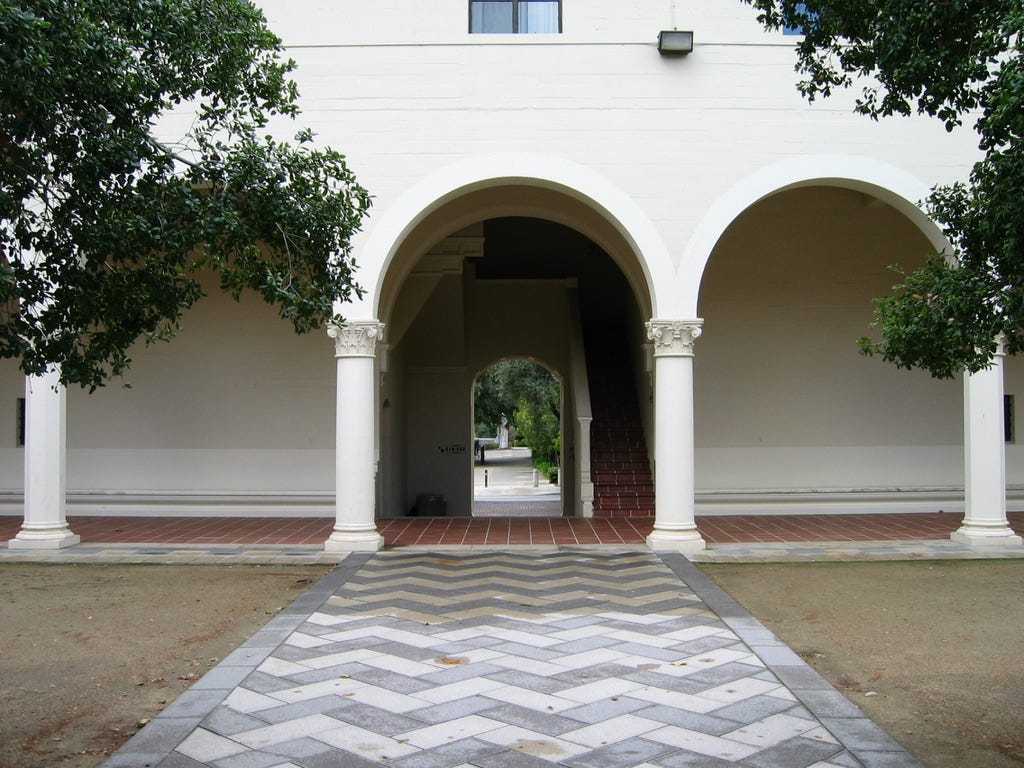Flight
This is Western Coffee—notes on building the creative body. Last time: Sun. The whole series is here. Please share this email; you can sign up free below.
Most things about getting older so far have been pretty great, but I do mourn the loss of flight. I write this from an airplane, so I’m obviously not speaking about that. I refer to what we do in dreams and imagination, a flight of the spirit.
Until my early 20s, I flew often. This activity was readiest and most far-flung in dreams, where I’d roam the skies at will, though in my teenage years I began to lose a little buoyancy—hobbled at times down to an astronaut hop. Still, in the Southern Utah desert, in broad daylight, I could stand on a cliff or trudge through my interior symphonies only half present, the rest of me touring over sandstone arches and antique rivers and basalt flows, a lonesome god tracking the gigajoule blue.
In high school I began working as a driver for Nanette, flinty priestess of all the old glories. She asked me once if I flew in my dreams. “You do?” she cackled at my response. “So do I!” We would tool around in her white 1991 vinyl-top Crown Victoria after school and in the summers, to J.C. Penney or the Olive Garden, where I ported her oxygen tank and we gazed down on ourselves from a common infinity.
For a short time in 2005, while nearly flunking out of college, I started to have lucid dreams. I would pilot with a directed precision out through my dormitory window into an immaculate wash of detail. (Those experiences have fueled the conceit in the novel I’m writing that major portions of our lives play out in forgotten dreams, over years of camouflaged time.) A few months later, despite my academic setbacks, I was taking two buses across Los Angeles to my $8-an-hour editing internship at Arianna Huffington’s house. The demands of the job were grounding, and in that year my dreams devoted themselves to a new subject: anxiety.
Not to say the flying ever stopped, though in recent years it has appeared more in physical metaphors—the flight of a gliding swim, of a sunny run over the bridge, of a deep thoracic backbend. I miss the freedom of my former flying fantasies and yet note that they corresponded with intense and various alienation from my own (queer, indolent, unworthy) body—that these disincarnations held another meaning of flight, flight from.
Jude the Obscure’s title character describes his distancing from the church in Victorian England: “My point of bliss is not upward, but here.” That’s a useful reference for the artist or the athlete, who aims for something out of reach, even unseeable, but must rely on what is squarely in her grip now to get there. This paradox—this anchoring midjourney, this premature finding of home—inverts ambition, concentrating its fissile beams. Their object is the body, which is a headquarters but also a beginning—refreshed, second by second, for the space of a life.
Kindly send me your thoughts, questions, and provocations: dmichaelowen@gmail.com. And say hi on Instagram, or let’s Peloton together: @leggy_blond.

